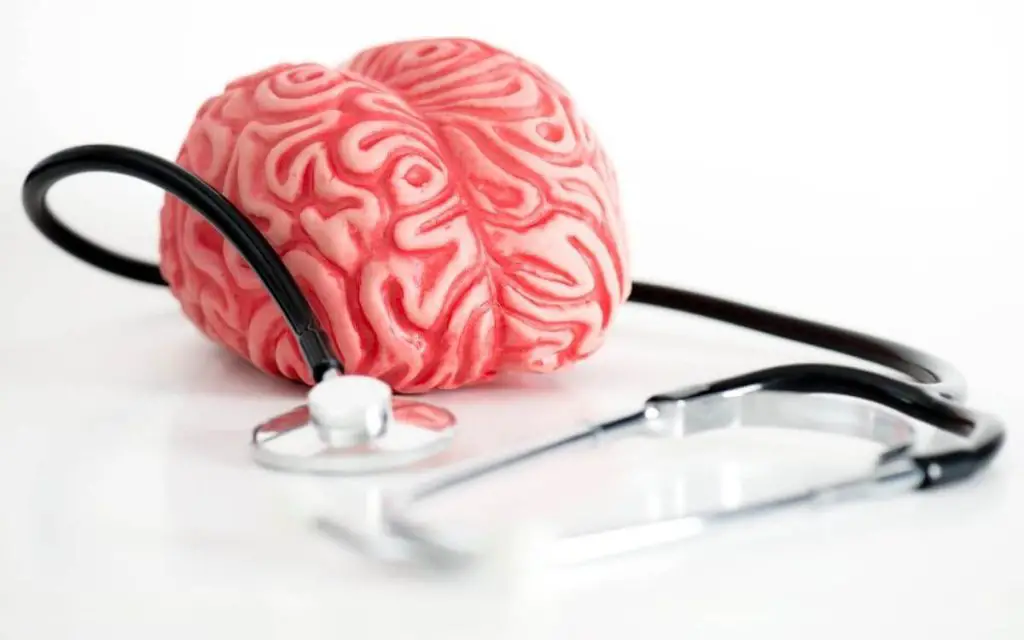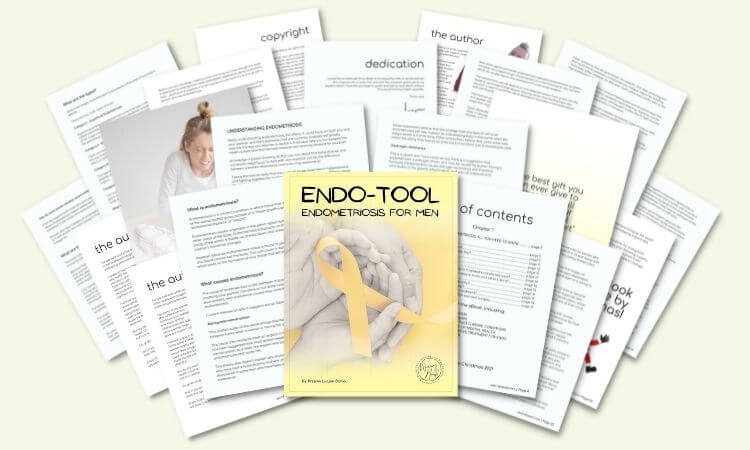Are antidepressants safe?
The answer to this question is complicated and depends on a variety of factors. Generally speaking, antidepressants are considered safe for most people when taken as prescribed.
However, there may be some risks associated with taking meds long-term or in certain situations. For instance, those who have certain mental illnesses, such as bipolar disorder or schizophrenia, may need to take extra precautions when taking antidepressants.
In addition, women with chronic pain illnesses like endometriosis or fibromyalgia may also need to monitor their reactions more closely while using antidepressants.
Ultimately it is important to work with your doctor when determining the best approach for managing symptoms related to depression or other illnesses and carefully consider any potential risks associated with taking antidepressants. It can help to talk about the benefits versus the risks before making any decisions.
My wife’s advanced endometriosis and fibromyalgia.
My wife suffers from terrible menstrual periods and abdominal pain caused by endometriosis tissue and fibro-fog related to fibromyalgia and other types of symptoms like nausea. She has an advanced type of endometriosis and was diagnosed by the doctors with fibromyalgia disorder the following year.
In her case, antidepressants brought more anxiety than she could ever bear.
I wanted to help my wife and other women with endometriosis and fibromyalgia, to give them the right information about common signs and risks factors, and how they affect people, so they can make an informed decision on what medical treatment is best for them.
Let’s begin with endometriosis and fibromyalgia…
What is endometriosis?
Endometriosis can occur in 10% of women aged 15 or 44. This usually occurs on or around the reproductive organs in the pelvis or abdomen, but the endometrial cells can also grow in more areas of the body such as lungs, eyes, and even the brain.
Endometrial tissue growing in such areas sheds during menstrual periods like healthy endometrial tissue inside the pelvis. The risk of developing an accumulation of abnormally formed tissues within the uterus, fallopian tube, and over body parts may cause inflammation, scars, reduced pregnancy rate, and pain in the cyst.
The problem may also cause the enlargement of fibrous tissue among the reproductive systems which forces them (scar tissue) to “stick” together and cause more pain. In order to treat endometriosis, laparoscopic surgery is the only way.
Who has fibromyalgia?
Those with fibromyalgia disease have higher risks factors of getting it than the average woman. My wife’s fibro was the consequence of the stress related to endometriosis. Often the disease starts in middle age and the risks of acquiring this are increased with age.
If you develop fibromyalgia, you will experience chronic pain, recurrent headaches, and other symptoms, it is possible that they may have the disease. Fibromyalgia doesn’t require surgery.
Scientists believe certain genes can increase your odds of acquiring it. However, it can be caused by people who do not have a family history of this disease.
Do antidepressants permanently affect you?
No studies have shown a strong correlation between taking antidepressants and permanent changes in the brain. Most studies regarding the effects of antidepressants are short-term and cannot provide evidence for greater risk factors.
However, there are anecdotal reports from people who have taken antidepressants for a long period of time, and some have reported no difference in pain, are less physically active, have lasting changes in mood, behavior, or thought patterns, and other complications which doctors often confirm.
It is important to discuss the potential risks and benefits with your doctor before deciding whether or not to take antidepressants.
Although doctors tend to give antidepressants too easily for women with endometriosis and fibromyalgia as a treatment for pain, it is important to understand that these drugs are not always the best answer for everyone and can have serious side effects on top of your disability.
Antidepressants can be helpful for patients managing life with diseases-related symptoms, but it’s important to discuss the risks with your doctor before taking them.

Who should not take antidepressants?
That depends on how your body copes with the illness and your lifestyle. If you have any sort of suicidal thoughts, then it would be best to avoid taking antidepressants. Also, if you are pregnant or breastfeeding, you should be aware that antidepressants can cause birth defects.
People with bipolar disorder should also avoid taking antidepressants due to the risks of triggering a manic episode.
Caution on specific depressant bleeding conditions.
Antidepressants may increase the risk of bleeding in some individuals who suffer from other medical conditions such as endometriosis, high blood pressure, and diabetes.
Hormone therapy can also cause other symptoms in the body of women with endometriosis, therefore it’s important to discuss any potential risks with your doctor before starting antidepressants.
Types of diabetes.
Some types of diabetes may be exacerbated by the use of antidepressants, so it is important to discuss this with your doctor before starting a new medicine.
When it comes to type 1, some studies suggest that certain medicines, such as tricyclic antidepressants and serotonin reuptake inhibitors (SSRIs), can increase the risks of hypoglycemia. Other studies, however, have found no link between type 1 and antidepressants.
When it comes to type 2, research suggests that certain antidepressant medications, such as SSRIs and tricyclic antidepressants can help to reduce the chance to develop hyperglycemia.
Chronic illness and anxiety.
Chronic illness can cause stress on the body, therefore anxiety, which can make it difficult to cope with everyday tasks. Antidepressants may help reduce the severity of these symptoms, but they should only be used under the care of a doctor to ensure that any potential risks are discussed thoroughly.
Chronic illness and depression.
Major depression is a disability, but it is also one of the most common symptoms associated with chronic illness and it is important to seek treatment for this condition as soon as possible. Antidepressants may help improve mood disorders, sleep quality, energy levels, and overall well-being in those affected by chronic illness.
Rheumatoid arthritis.
For certain illnesses, such as rheumatoid arthritis or heart disease, it can be beneficial to combine the use of nonsteroidal anti-inflammatory drugs (NSAIDs) and antidepressants. NSAIDs can reduce risk factors of developing inflammation and arthritis pain, while antidepressants may be used to help manage symptoms related to mental health.
Antidepressants and IBS.
Irritable bowel syndrome (IBS) can cause a great deal of discomfort with constipation, and distress in life. While antidepressants are not typically recommended as the first line of treatment for IBS, they may be helpful in reducing the severity of symptoms.
Chronic illness and Obsessive-Compulsive Disorder (OCD).
People who develop chronic diseases often experience intrusive thoughts or compulsive behaviors that can interfere with daily life. Antidepressants may help reduce the severity of these symptoms and make it easier to manage them over time.
Fibromyalgia and antidepressants.
Another illness to consider is fibromyalgia. This debilitating illness causes widespread pain and chronic fatigue affecting people’s mental health. People with fibromyalgia may find relief from pain and fatigue, by using antidepressant medications.
Research suggests that SSRIs and tricyclic antidepressants can all reduce symptoms of fibromyalgia. However, it is important to understand the potential risks associated with each type of medication and discuss them with your doctor before starting any antidepressant treatment.
If you want to learn more about fibromyalgia, I wrote a “Fibromyalgia for Caring Partners” e-Book.
Get Your 3 FREE Chapters!
Fibromyalgia for Caring Men

Endometriosis and antidepressants.
Endometriosis is a condition that tissue that causes severe pain related to the menstrual period that can block fallopian tubes and impacts bowel movements causing constipation and pain. Antidepressants may be used to help reduce the intensity of endometriosis-related pain, and research suggests that SSRIs may be particularly effective for this purpose.
A severe menstrual cycle alongside developing endometriosis can also lead to fatigue, pain, and feelings of sadness, and antidepressant medications may be helpful in these cases as well so a doctor may recommend them.
If you want to learn more about endometriosis, I wrote an “Endo-Tool, Endometriosis for Men” e-Book.
FREE Chapter of “Endo-Tool”
Endometriosis e-Book for Men

Conclusion…
Treating with antidepressants illness-related symptoms can be a challenging decision, but with the right information and support, it’s possible for a patient to make an educated decision about what is best for her.
It’s essential to be aware of the effects that other conditions have on antidepressant treatments. This will help you make an informed decision about the best medication for you.


About Me
Hi, I’m Lucjan! The reason why I decided to create this blog was my beautiful wife, who experienced a lot of pain in life, but also the lack of information about endometriosis and fibromyalgia for men…
